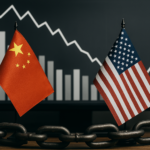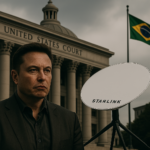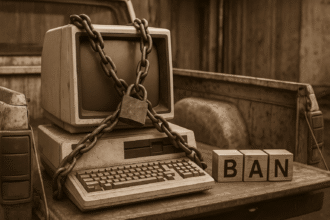In the midst of the institutional agenda of the Presidency, President Luiz Inácio Lula da Silva recorded videos supporting the campaigns of Eduardo Paes (RJ) and Guilherme Boulos (SP). The acts are legal — but they reveal yet another facet of a structural problem: the use of the state apparatus as an extension of party strategies.
This behavior is not exclusive to the current government. But the recurrence with which the Brazilian state serves electoral purposes raises an uncomfortable question: Who controls the power when power controls everything?
The Electoral Leviathan
The public sector in Brazil is gigantic — and as such, it offers a disproportionate advantage to those who command it. Positions, budgets, appointments and institutional propaganda are often confused with political campaigns, especially in election years.
The line between what is public and what is partisan becomes blurred. And the cost falls on the taxpayer, who finances not only the structure of the State, but also, indirectly, the reelection projects of its leaders.
The theory of public choices
For the Public Choice School (or public choice theory), formulated by James Buchanan, the politician acts with personal incentives — not as guardian of the common good, but as an agent that responds to stimuli. The State, then, becomes a stage for exchanges, favors and alliances aimed at perpetuating power.
When the president records electoral videos while performing institutional functions, what we observe is not just political engagement — it is evidence that the Brazilian state has been captured by partisan logic.
Representation or rigging?
The usual justification is the “defense of the political project”. But when this project controls ministries, public banks, regulatory agencies and official communication, we are faced with a distortion: the transformation of the State into power maintenance machine, and not of plural representation.
Conclusion
Brazil needs to decide whether it will continue to accept the electoral use of the State as something natural — or whether it will seek institutional containment mechanisms. Because when the government is confused with a party, democracy becomes a façade — and the State, a permanent electoral mechanism.



